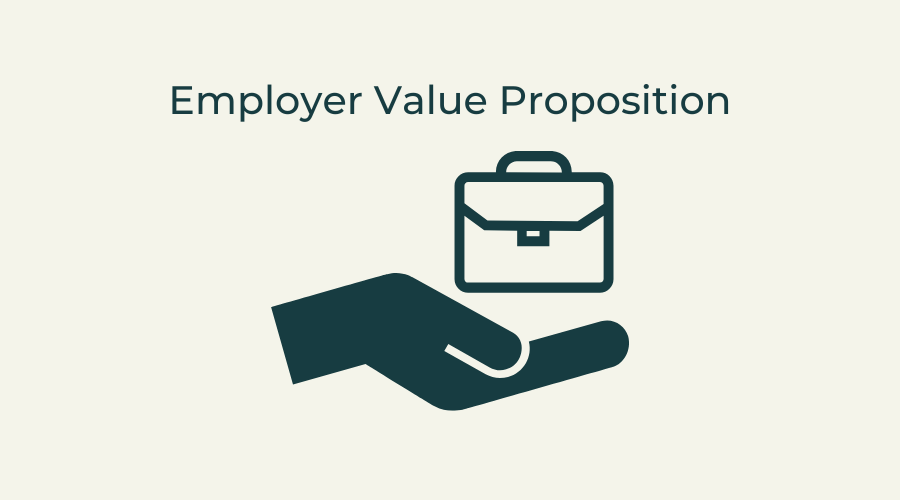Within today’s job market, getting creative with hiring solutions is more important than ever. An employee value proposition, EVP, is one tool employers can use to stand out from competition in attracting top talent to their organization. Gone are the days where simple promises of growth or the highest salary wins over the in-demand candidate. Rather, employers must present a comprehensive package that stands out amongst companies lined up ready to hire.
According to Gartner, a technological research and consulting firm, an Employee Value Proposition is “the set of attributes that the labor market and current employees perceive as the value they gain through employment with the organization.” A well-developed EVP displays to a potential candidate not only the financial rewards being offered, but also the professional development opportunities, unique company benefits, or values and vision of the organization. An EVP may come in many forms such as a statement included in job ads, a video shared from company social media platforms, or one-pager shared with new employees. Regardless of the form it is delivered in, a successful EVP is one that company recruiters know well and is easily communicated to candidates.
Every EVP should include certain elements that create a comprehensive view into the unique worth a company offers its employees. The EVP may be wrapped up in a share-worthy tagline, but almost always expands on several key components.
Compensation
The explanation of compensation in an EVP could include the company compensation strategy, system for raises and promotions, current employee compensation satisfaction, employee review procedures, and market comparisons.
Benefits
Benefits shared in an EVP should detail the basic medical, dental, and vision that is expected as standard and whether any percentage of premiums are covered by the employer. In addition to these basics, the company should share about their time off policies, retirement benefits, employee assistance programs, holidays offered, family leave, and any other perks included in total compensation. Forward thinking employees are always going to be considering the whole package, and one additional incentive may be the difference in being the employer of choice.
Professional Development
How is the company investing in its future by making employee growth a priority? Employees want to be re-assured that loyalty is not a one-way street when it comes to employment. Sharing how the organization invests in its employee’s growth can be a strategic differentiator in the market. Consider sharing whether the organization provides education reimbursement, professional networking opportunities, career planning, or training for advancement opportunities. Candidates want to know how their future work will be evaluated and how feedback will be provided.
Work-Life
Work life in an EVP clues candidates into what day-to-day values are prioritized in the company. Nike expresses their values in a EVP slogan, “win as a team.” Nike wants candidates to know they are a company who values working together to the make the world better through their products and services. Google claims to “build, design, code, create—for everyone.” They want to cultivate a diverse network of employees to join the ‘Googler’ team. Maybe the organization allows flexible work hours, advocates for clear work-life boundaries, or encourages healthy lifestyles; these are all important to share in an EVP. Finding creative ways to share the values the organization is focused on can help a company stand out and draw in candidates who feel aligned similarly.
Culture
An EVP could include a focus on company culture. Perhaps share that a vision of collaboration or company communication is a current emphasis. Answering what leadership style is prevalent could be a huge factor in candidate perspective. What efforts is the company making to create change via social or environmental responsibility?
Employee value propositions can be a unique tool to foster buzz amidst both active and passive candidates. Companies can incorporate crafting an EVP during the annual goal setting process. By identifying not only company goals, but also ideal candidate traits, the organizational leadership can perform a gap analysis to pinpoint focal points. After creating the EVP from current goals, employers can initiate a roll out by defining where and how the EVP will be advertised to gain the best results. EVP’s should be evaluated on a yearly basis to ensure alignment with the everchanging and up-to-date company vision.
Stephanie Mauney is a freelance writer and content curator specializing in Human Resources

